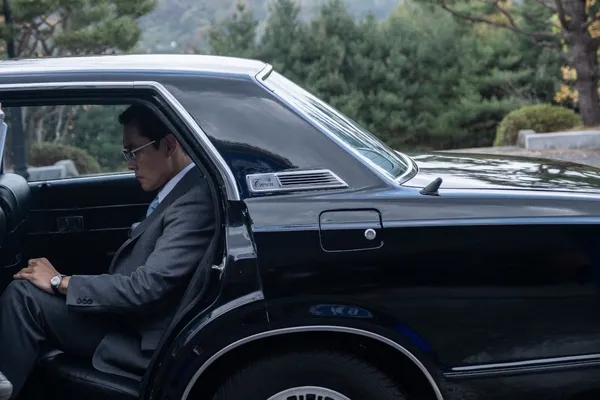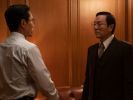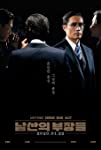Eye For Film >> Movies >> The Man Standing Next (2020) Film Review
The Man Standing Next
Reviewed by: Jennie Kermode

An initially popular president who oversaw a major economic boom, South Korea's Park Chung-hee responded to declining popularity in the early Seventies by assuming full control of the military and media, declaring martial law and rewriting the constitution. As you might imagine, this led to widespread consternation, though people were wary of talking about it because politically motived arrests were frequent. According to rumour, Park was on the verge of doing much worse when action was eventually taken, but the country remains deeply divided about what happened. Based on Kim Choong-seek's book of the same name, this film explores those events from the perspective of then Korean Cantral Intelligence Agency (KCIA) head Kim Kyu-pyeong (Lee Byung-hun). It's a film full of schemes and spies and double crosses but it centres on the moral and emotional dilemma faced by Kim himself.
Alongside the professional relationship between the two men was a strong, long-lasting friendship, and the chemistry here is just right - subtly expressed, of course, but meaningful. Lee Sung-min is excellent as Park, giving him sufficient humanity that one can see why people cared about him even if one doesn't know the relevant history, yet, increasingly, shifting him towards impulsive and destructive behaviour. There's an implicit suggestion hat the president's mental health is declining under the pressure of the job and that what we are watching is a long, slow panic reaction to decreasing popularity - his relationship with the public getting worse, of course, each time he tightens the screws. With Kim he is able to be human, yet it becomes more and more difficult for Kim to criticise him, even gently, without triggering a similar reaction.

Casting one of the most popular and widely respected actors in South Korea to play the role of Kim was always going to be controversial. Does it constitute a form of propaganda in itself? In fact, this is anything but. It's Lee Byung-hun's skill that director Woo Min-ho wants, not his fan appeal. Lee makes his character deliberately ambiguous. The audience is not asked to decide whether or not he is making the right choices, just to appreciate the difficulty of those choices and how his options narrowed as the situation got worse.
The difficulty with this is that it creates a situation in which people who don't already have strong feelings about the way Park's regime ended are likely to find the film rather cold. Audiences tend not to appreciate being left unsure who to root for. Lee tries to make us care bout what Kim is going through on a personal level, but in doing so he has ot overcome the additional barrier of playing a character who is repressing his emotions. We only glimpse what's going on under the surface in moments when he's caught off guard. There's some impressive acting work going on here but some viewers will still struggle to connect.
This is more of a problem in the early stages of the film, when it's building up its complex, twisting story and is necessarily slow paced. Later on, once the pace picks up and earlier threats manifest directly as violence, the film tightens its grip. Woo really knows his stuff when it comes to spy cinema. Everything is beautifully realised on screen and there are some simply stunning set pieces, including a chase through the woods which you won't forget in a hurry. The atmosphere of the Seventies blends nicely into this and the production design is superb, really bringing it to life. If you're a fan of the genre, you'll find that this film is full of frames you want to cut out and keep.
Stylish as it is, this is a film which offers much to admire even to those who don't manage to penetrate beyond the surface. If you do, you'll find something that's surprisingly moving as well. However you feel about the way events panned out, this is an elegant portrait of a tragedy.
Reviewed on: 08 Mar 2021

















